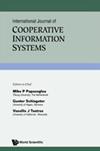最后的空白
IF 0.5
4区 计算机科学
Q4 COMPUTER SCIENCE, INFORMATION SYSTEMS
International Journal of Cooperative Information Systems
Pub Date : 2016-06-01
DOI:10.5204/IJCIS.V9I2.139
引用次数: 2
摘要
优质研究,创新进取。美国历史学家戴恩·肯尼迪的《最后的空白:探索非洲和澳大利亚》为我们提供了一部精心撰写的英国探险历史比较书,挑战了19世纪探险家和土著关系的浪漫概念。《最后的空白》这个标题本身就会让人联想到无主之地的景象。这是英国探索两大大陆的最后疆界,一个“推进帝国议程,先发制人的政治对手,激发爱国自豪感,发现自然资源,促进商业利益和进一步的人道主义目标”的空虚(第60页)。《最后的空白》符合土著、殖民民族志的一种类型,英国探险家是中心人物,土著人是配角,但这本书与传统的西方叙述不同。肯尼迪写道,这本书“追溯了探索的发展,从一个想法到一个实践,从一个实践到一个结果,从一个结果到一个神话”(第23页)。本文章由计算机程序翻译,如有差异,请以英文原文为准。
The Last Blank Spaces
Quality research, innovative and provocative. American historian Dane Kennedy’s The Last Blank Spaces: Exploring Africa and Australia delivers a carefully written comparative history of British exploration that challenges romantic conceptualisations of explorer and Indigenous relations in the nineteenth century. The very title ‘The Last Blank Spaces’ conjures up images of terra nullius. The final frontiers in British exploration of two vast continents, an emptiness “to advance imperial agendas, to pre-empt political rivals, to inspire patriotic pride, to discover natural resources, to promote commercial interests and further humanitarian objectives” (p. 60). The Last Blank Spaces fits into a genre of Indigenous, colonial ethnography when the British explorer is the central character and the Indigenous person is a support, but the book differs from conventional Western accounts. Kennedy writes that it is a book that “traces the development of exploration from an idea to a practice, from a practice to an outcome, and from an outcome to a myth” (p. 23).
求助全文
通过发布文献求助,成功后即可免费获取论文全文。
去求助
来源期刊

International Journal of Cooperative Information Systems
工程技术-计算机:信息系统
CiteScore
2.30
自引率
0.00%
发文量
8
审稿时长
>12 weeks
期刊介绍:
The paradigm for the next generation of information systems (ISs) will involve large numbers of ISs distributed over large, complex computer/communication networks. Such ISs will manage or have access to large amounts of information and computing services and will interoperate as required. These support individual or collaborative human work. Communication among component systems will be done using protocols that range from conventional ones to those based on distributed AI. We call such next generation ISs Cooperative Information Systems (CIS).
The International Journal of Cooperative Information Systems (IJCIS) addresses the intricacies of cooperative work in the framework of distributed interoperable information systems. It provides a forum for the presentation and dissemination of research covering all aspects of CIS design, requirements, functionality, implementation, deployment, and evolution.
 求助内容:
求助内容: 应助结果提醒方式:
应助结果提醒方式:


